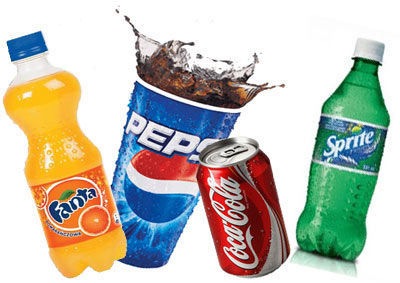
Coca-Colas, Pepsi and Sprite are all soft drink brands that for decades have been popular among Black consumers in Chicago and America for generations. But health advocates have expressed concern that soft drinks have also become an unhealthy habit that has contributed to larger waistlines and rising obesity among Blacks.
Now, under a proposal by Cook County Board President Toni Preckwinkle, soft drinks will also get more expensive.
Preckwinkle has proposed a penny-an-ounce sweetened beverage tax for consumers in Cook County. She said the plan could help Cook County and thousands of Blacks who struggled to stay healthy and in shape. But her plan has drawn criticism from beverage companies and consumer organizations who are already weary of the county’s string of taxes that were passed in 2015 in Cook County.
Preckwinkle said her new proposal could benefit Cook County and residents with weight problems. But in a phone interview with the Chicago Defender on Oct. 27, Preckwinkle said the real reason for proposed beverage tax is to close a $173 million deficit in Cook County’s $4.4 billion budget for 2017.
“I don’t want to mislead you. This is a revenue-generating idea, but this also benefits the consumer health,” Preckwinkle said.
“We had three options. 1. Raise property taxes, 2. Raise sales taxes, or 3. Add a sweet beverage tax.”
The sweetened beverage tax would increase the cost of pop by about 72 cents for a six pack of soda, and about 68 cents for a two-liter bottle. The tax would be applied to fountain drinks and beverages that include artificial sweeteners. The tax would generate $74 million in the first year, Preckwinkle said.
The tax proposal does not include 100 percent fruit juice, water, milk and baby formula.
Preckwinkle said she is meeting with McDonald’s franchise owners about how the beverage tax would affect fast-food restaurants.
If it passes, Cook County will be one of several governments to pass a sweetened beverage tax in recent years. This year, Philadelphia became the first major city to pass a soda tax. Despite the beverage industry’s multimillion-dollar campaign to block it, the Philadelphia City Council approved a 1.5 percent ounce tax on sugar and diet beverages.
A recent study by the American Journal of Public Health found that after Berkeley, California, passed the country’s first big soda tax in 2014, soft drink consumption in the city went down. Similar results were reported in low-income communities in San Francisco and Oakland.
Preckwinkle also cited a report from the World Health Organization (WHO). The organization in 2016 said there is evidence that shows taxes on sugary drinks help prevent obesity and diabetes.
But opponents of the proposed tax said the move would hurt the soft drink industry. The American Beverage Association has been running television and radio ads as Preckwinkle seeks to drum up support for her proposal.
However, the proposal is in danger of fizzling before the Cook County Commission. Some County Board members are weary of passing another tax. There is already a 3 percent tax on retail sales of soft drinks in cans or bottles. There is also a 9 percent tax on the wholesale price of fountain drink syrup On top of city and state taxes, Cook County increased its sales tax on cigarettes in 2013 by $1.
Commissioners also passed a 3 percent amusement tax on ticket-reselling websites and a 1 to 5 percent tax on firearm ammunition. On top of this, Chicago — the seat of Cook County — has the highest sales tax in the nation among major cities with 10.25 percent.
Beverage Tax on Sweet Drinks



